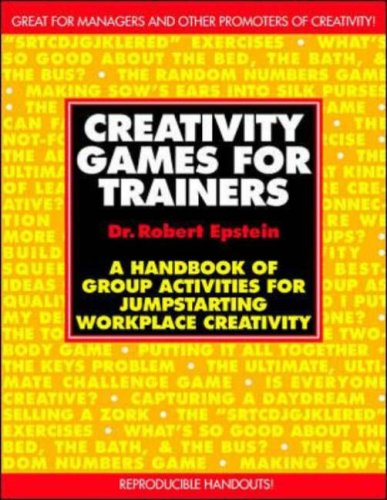Owen Morris’s Other Creativity Games (To Date)
(story supplement)
by Dave Madden

Aunts in Your Paunts
For maximum effect, the game master should only commence Aunts in Your Paunts when the number of available cousins, who serve as players, exceeds that of the adults within range. The game master appoints a cousin to go first and one target aunt (never the player’s mother) to whom the player must bring his or her attention by any means necessary. However: no mouth noises. The round is over when an aunt swears, kicks the cousin away with her foot, screams “What is it?”, or makes some other kind of acknowledgement.
Points aren’t awarded for the performance, or for the intensity of the aunt’s reprimand. In fact, Aunts in Your Paunts isn’t so much a game as a way to make all the players feel proud of one another.
I Clavicle, You Clavicle
A game only for seasoned professionals. The game master begins by reversing in an utterance the words corresponding to a sentence’s verb and object. Play proceeds back-and-forth, accordingly. The objective is to distort each sentence’s meaning to the point where unseasoned players or those otherwise outside the game cannot ascertain the conversation’s actual topic.
Example: “I didn’t way a find to school to get today.”
“What? Why not?”
“I someone wanted think to fight a start with me.”
“Who was it? What happened?”
“Dad! We supposed to be are trying to verbs our switch and objects!”
“Owen, I don’t want to play.”
“Marshall, what’s he saying?”
Invented back in 2002 from a now-historic exchange at the soccer field: “Dad, I clavicle my broke.” / “You clavicle your what?”
The Prime of Your Life
The game master asks the person or persons with whom he decides to play to state for the group his favorite prime number. Then, privately, in his pocket, the game master presses Start on his Timex’s stopwatch function. Follow-up questions on the part of the player, such as “What are you talking about?” or “What’s a prime number?” are permissible, and the game master must answer accordingly. Once the player states a prime number, the game master pulls out his stopwatch and announces how many seconds have passed. This number then gets added to the player’s stated prime, and the game master pronounces this new sum as the player’s real favorite prime number.
Example: A player announces “43” and has taken 43 seconds to do so.
The game master says, “Actually, 86 is your favorite.”
If the new sum is not a prime number, the game master loses only if the other players notice.
The Prettiest Pretty
In a classroom, church, or other public space where people sit quietly for extended periods of time, the game master looks around the room and decides which girl is the prettiest. Then he must get her attention without getting caught by the teacher, parent, or other adult within range. He may employ any attention-getting methods at his disposal short of speaking or making any other mouth sounds. When (if) the girl makes eye contact, the game master must spell Y-O-U-A-R-E-T-H-E-P-R-E-T-T-I-E-S-T-P-R-E-T-T-Y in American Sign Language with his hand, holding it out of eyeshot under a desk or seat.
To win, he must get from one Y to the other before the girl looks away. The most challenging of all creativity games. No one has ever won it.
Understate Every Obviousness
The game master chooses when to begin the game and he makes this choice privately, to himself. Any utterance from the other (unwitting) players the game master must reduce to some easy banality.
Example: A player says, “You suck cock, Morris? You suck your daddies’ cocks?” The game master can then reply, “Masculinity is a performance.”
The same shall go for any marked gesture or any clear decisions made about clothing or appearance. The benefit of Understate Every Obviousness is that it can be played in places and situations not normally suitable for game-playing. Locker rooms. Stairwells. Principals’ offices. Also: the game master always wins.
No One Likes a Mystery!
The game master waits for the right moment in an already-established conversation to commence playing, and he then asks of the person or persons involved what he or she doesn’t know. He does this directly—“What don’t you know?”—and waits for a response. Once given, each player in turn says “What a mystery!” and provides an answer or solution.
Example: “I don’t know the answer to the extra credit problem.”
“What a mystery! It’s zero.”
“What a mystery! It’s b2.”
“What a mystery! It’s ‘the discriminant’.”
Players must answer as accurately as they can. The game master, humbly, answers last.
Dance Dance Convolution
Best commenced in the kitchen after dinner when one father is washing the dishes and the other father is unoccupied. The game master steps lightly on the toes of the unoccupied father and says, “May I have this dance?” The unoccupied father will then proceed to waltz the game master in a simple box pattern. The game master lets this go on for a while, until the occupied father smiles over his shoulder. Then the game master calls out, extemporaneously, the name of a dance.
Examples: The Lunchbucket. The Big Rig Jig. The Orange Candybar.
The unoccupied father must then immediately perform the dance. No objections. Game proceeds until the unoccupied father becomes the preoccupied father. Dance Dance Convolution was the first-invented creativity game. Now inexplicably defunct.
